Family: Fabaceae
Synonyms: Amoria repens, Lotodes repens, Trifolium biasolettii, Trifolium Limonium, Trifolium macrorrhizum, Trifolium nevadense, Trifolium occidentale, Trifolium orbelicum, Trifolium orphanideum, Trifolium stipitatum.
Common Name: White Clover
Local Name: Jangali parseen (जंगली परसीन)
Jangali parseen is an evergreen perennial herb of Western Himalaya, very frequent in grasses meadows up to an altitude of 2500-3000 meters. It grows well in a moist sunny habitat and can be propagated by seeds.
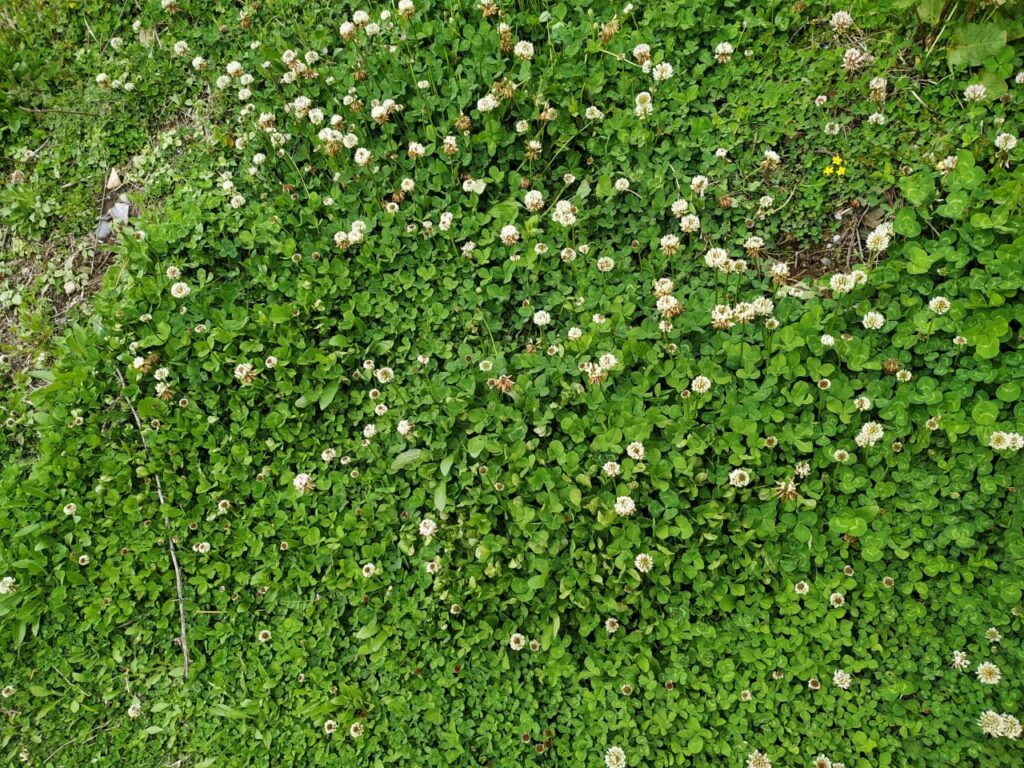
jangali parseen is used as a pot herb and young leaves of this plant are eaten both raw or cooked. Flowers, leaves and seed pods are dried and ground into flour and eaten. Edible plant parts can be used fresh are dried for later use. Leaves are best harvested before the plant comes into flower and can be used in salads and soups etc. Being rich protein in content, it is considered as one of best forage for cattle.
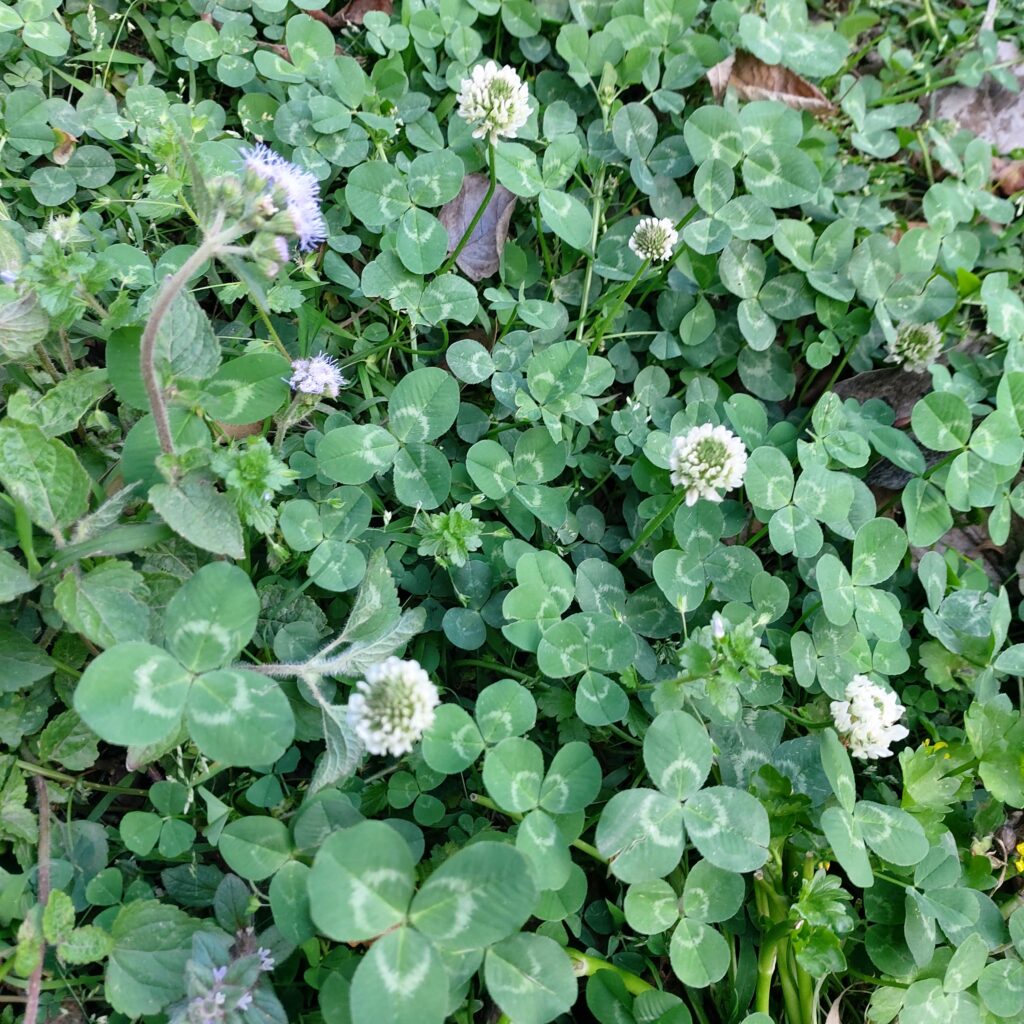
Local people harvest this plant for their local use as a source of food, fodder and medicine from wild habitat. Being a member of family Fabaceae, it is able to fix atmospheric nitrogen and considered an excellent green manure for lawns and gardens. So, plant is sometime grown as an ornamental plant in lawns and gardens.
Jangali parseen Plant:
Plant is prostate, creeping, glabrous to sparsely pubescent, perennial herb upto 10 – 50cm tall. is with creeping stems that develop form roots at the nodes and can form dense mats.
Leaflets obovate, rounded or retuse at the apex. Entire or toothed; stipules broad at the base, sheathing.

Flowers in globose heads. Calyx pilose; teeth lanceolate. Corolla white, tinged with pink at maturity.
Fruits linear, 4-6 mm long, 3-4 –seeded, covered by persistent calyx.
Edible leaves of this Jangali parseen are best harvested in pre- spring to pre-summer season just before plant start flowering. Flowers of this plant are available from spring to autumn season of the year. Roots are best to harvest in winters after flowering and fruiting. Plant show luxuriant growth but even then, flowers and roots of this plant need to be harvested in sustainable manner like collection from different habitat for ensuring sustainable development.
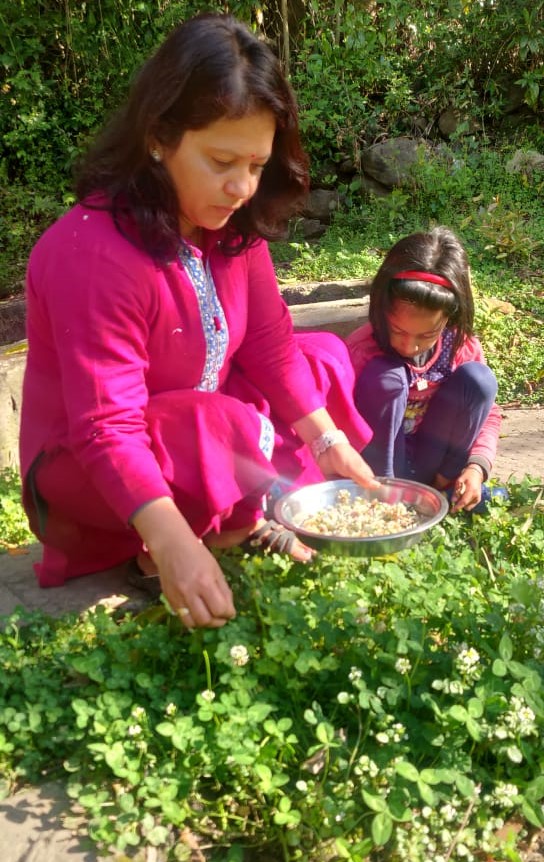
Edible Uses:
All the parts of this plant young leaves, flower. seed pods and roots are edible. Fresh young leaves and immature flowers can be eaten raw in salads or cooked as leafy vegetable most preferably with other available greens. Leaves and flowers can be dried for later use. Both fresh and dried leaves can be added to soups. Dried leaves impart a vanilla flavor to cakes etc.1 and dried flower head are used in making herbal tea. Flowers and seed pods of jangali parseen are ground into flour which can be added to flour of other cereals for harnessing its nutritive and medicinal values.
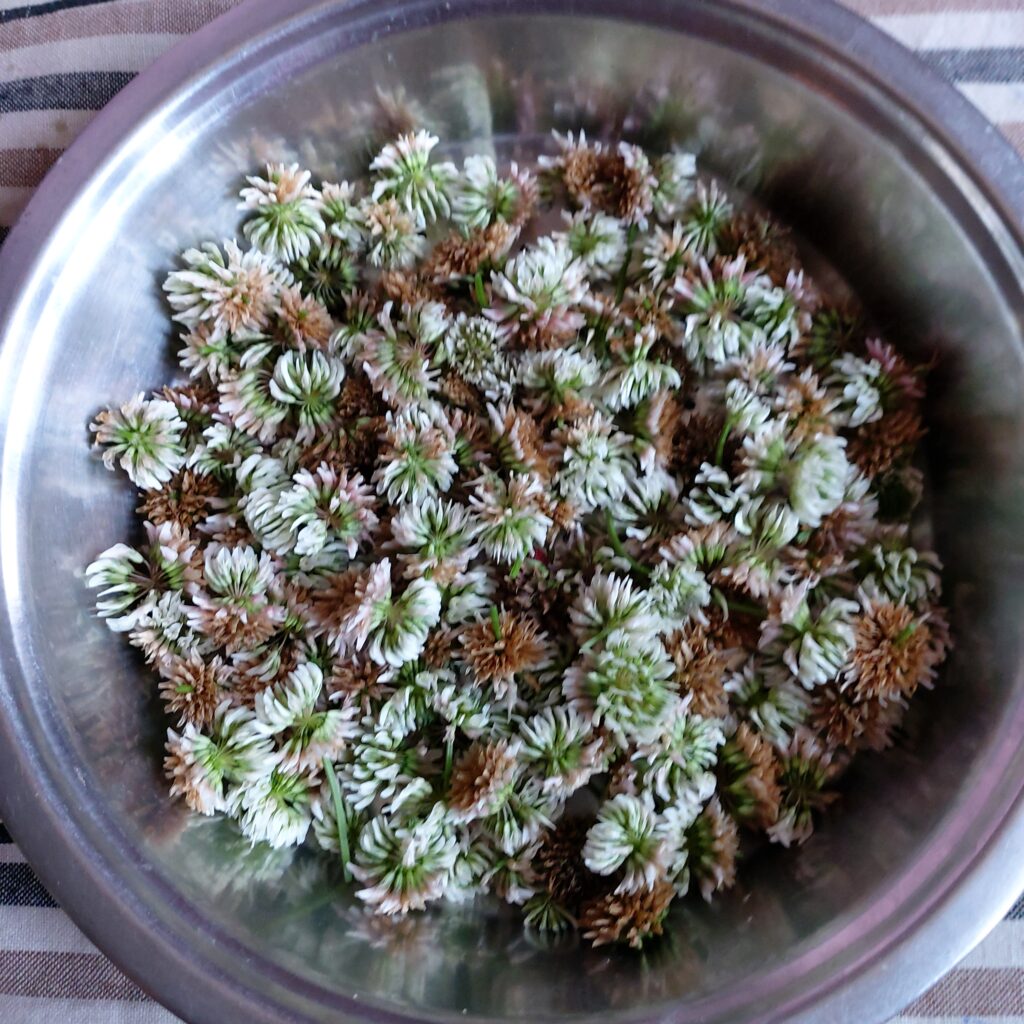
Those under the medication of blood clots or hypertension, having surgery the for next two weeks and who areallergic to jangali parseen should avoid eating this wild green because it possesses blood thinning substances 5.
Saag;
Chopped leaves of jangali parseen and other potherbs, 1 kg; mustard oil, 2 table spoons; coriander powder 1 table spoon; fenugreek powder, ½ table spoon; cumin seed ¼ table spoon; turmeric powder, 1/4 table spoon; red chilies, 2-3; chopped onions 2-4; garlic, 4-5 cloves; ginger paste ½ table spoon and salt according to taste.
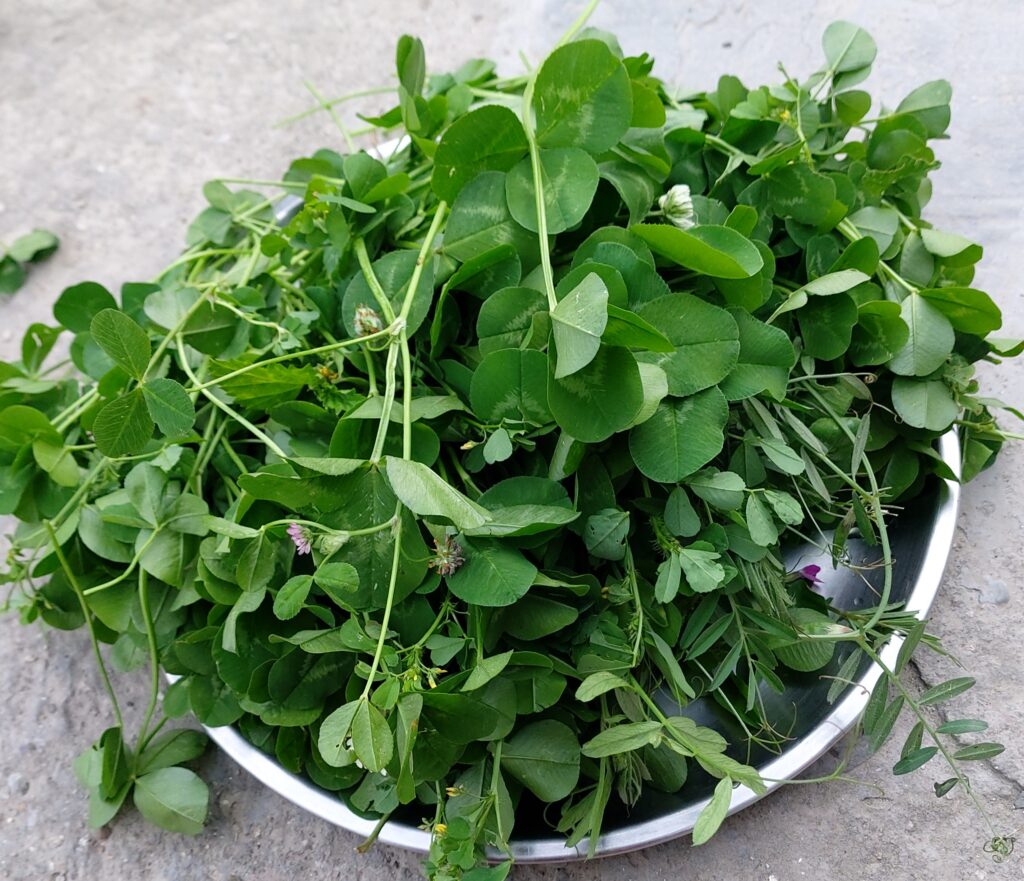
Method:
Boil chopped leaves they become soft. Then mesh manually or in a mixer. Then sauté with hot mustard oil and the spices listed before in sequence. This sauted saag is then ready and can be served as such or can be mixed with 2 or 3 chopped onion or boiled potato and cooked for another 5 to 10 minutes before serving.
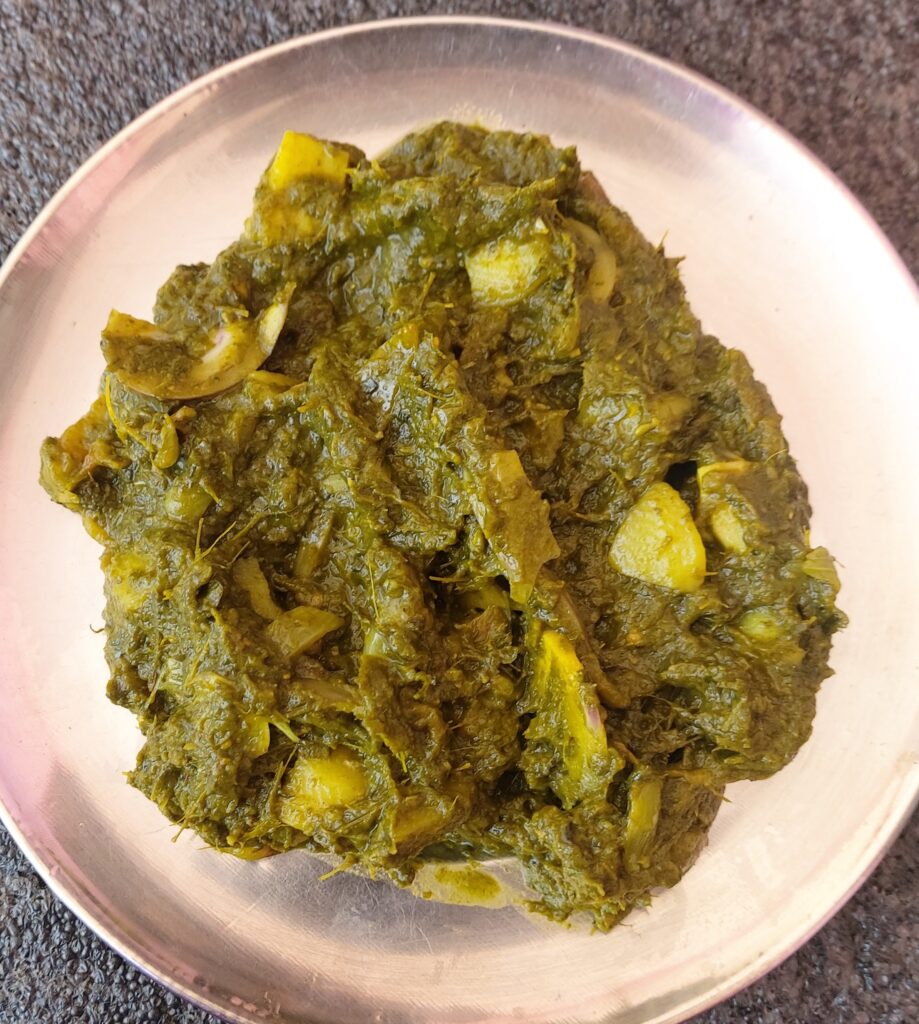
Pakoras:
Ingredients:
Fresh or dried flower heads of jangali parseen ,250 g; besan (black gram flour) or corn flour,1/2 kg ;mustard oil, 10-12 table spoon; 1 cup fresh coriander plus curry and mint leaves (chopped), 5-6 green chilies, ½ table spoon turmeric powder, 2-3 medium sized chopped onions, 2-3 medium sized finely chopped potato and salt according to taste.
Method:
Make a paste of flower head, leaves, chopped potatoes, basen and spices listed above. Mix well and and make small ball of this paste. Put mustard oil in a fry pan and give these balls a deep fry.Repeat this process till whole paste is over. Pakoras are now ready to serve. Serve these hot with chutney or tomato-ketchup.
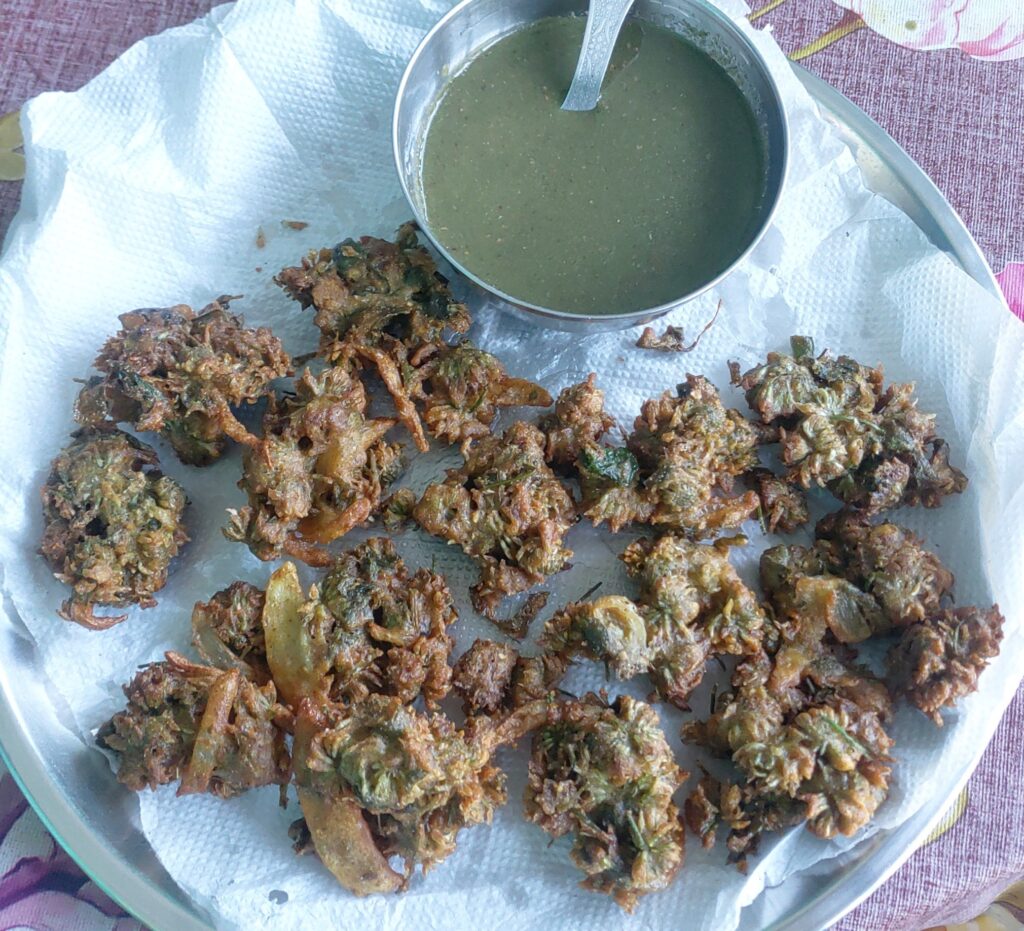
Food Value:
Jangali parseen is a nutritious herb, rich in protein, minerals (especially Ca, P and Mg) and soluble carbohydrates6.
Medicinal Uses:
The plant is antirheumatic, antiscrophulatic, depurative, detergent and tonic 2 . An infusion has been used in the treatment of coughs, colds, fevers and leucorrhoea 3. A tincture of the leaves is applied as an ointment to gout2. An infusion of the flowers has been used as an eyewash3.
Other Uses:
Local people of Western Himalaya mainly use Jangali parseen as fodder for its rich protein content. Plant is grown as an ornamental plant in lawns and garden for its ability to fix atmospheric nitrogen. Grown for pasture and soil improvement, forage, hay, silage, and cover 7. The plant makes a good green manure, it is useful for over-wintering, especially in a mixture with Lolium perenne 4. It can be under sown with cereals or with tomatoes in a greenhouse (sow the seed before planting the tomatoes) 4.
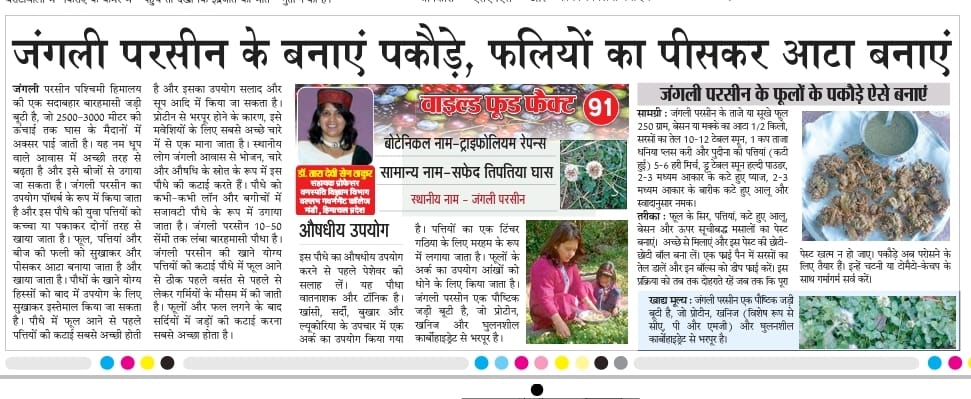
References:
- Schofield, J. J. (1989). Discovering Wild Plants-Alaska, W. Canada and the Northwest.
- Duke, J. A., & Ayensu, E. S. (1985). Medicinal plants of China (Vol. 2). Reference Publications.
- Moerman, D. E. (1998). Native american ethnobotany. Timber press.
- Woodward, L., & Burge, P. (Eds.). (1982). Green Manures. Elm Farm Research Centre.
- https://www.healthbenefitstimes.com/clover.
- https://www.feedipedia.org/node/245.
- http://ecocrop.fao.org/ecocrop/srv/en/home.
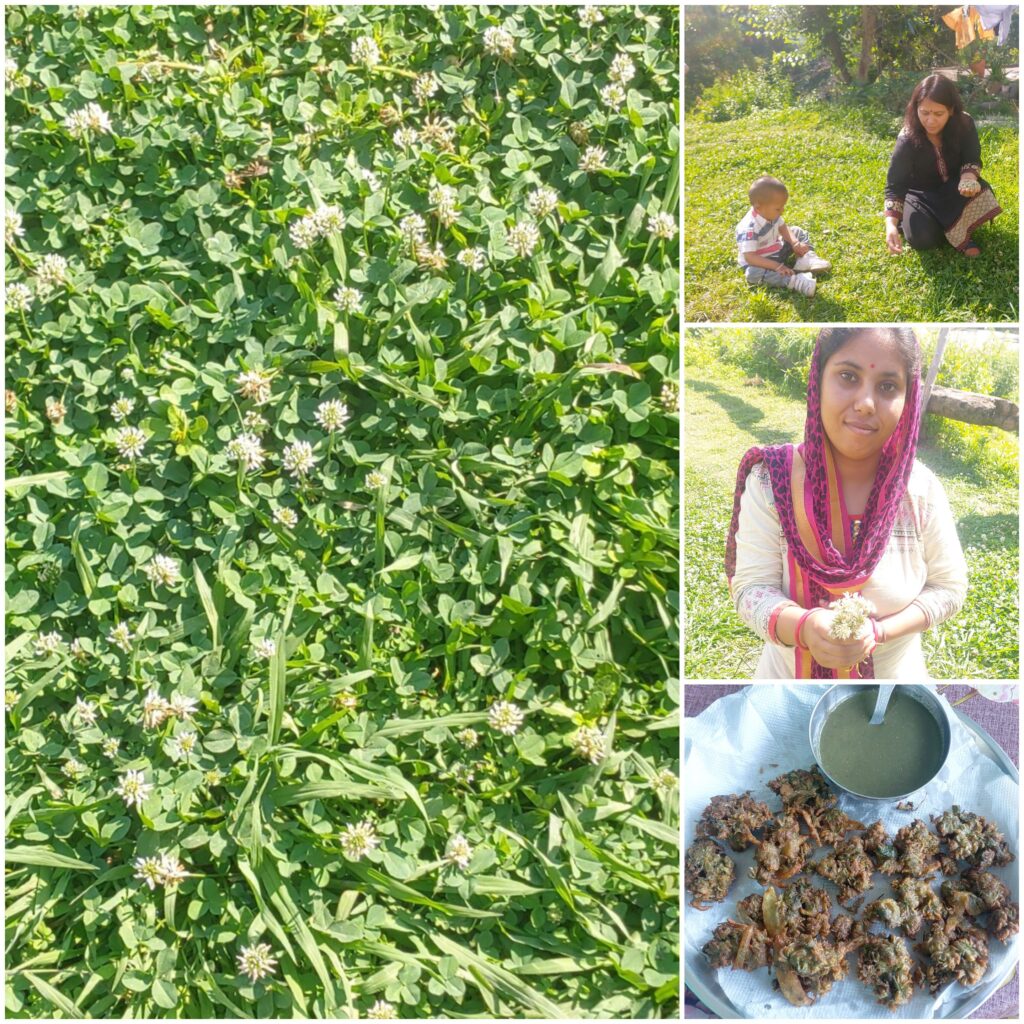

Hello, Neat post. There’s a problem with your site in web explorer, might check this? IE still is the marketplace chief and a good portion of people will pass over your excellent writing due to this problem.|
Very nice post. I just stumbled upon your weblog and wanted to say that I have truly enjoyed browsing your blog posts. In any case I will be subscribing to your feed and I hope you write again very soon!|
i will read again
amazing article
really helpful
Nice to read
I have been browsing online more than 4 hours today, yet I never found any interesting article like yours. It is pretty worth enough for me. In my view, if all webmasters and bloggers made good content as you did, the web will be a lot more useful than ever before.|
Do you have a spam problem on this blog; I also am a blogger, and I was curious about your situation; we have developed some nice procedures and we are looking to swap strategies with others, please shoot me an e-mail if interested.|
My relatives every time say that I am wasting my time here at net, but I know I am getting experience every day by reading thes fastidious articles or reviews.|
nice article
Great blog! Is your theme custom made or did you download it from somewhere? A theme like yours with a few simple adjustements would really make my blog shine. Please let me know where you got your theme. Cheers|
Hi there! Someone in my Myspace group shared this website with us so I came to give it a look. I’m definitely loving the information. I’m bookmarking and will be tweeting this to my followers! Superb blog and wonderful design and style.|
Informative article
That is a great tip particularly to those fresh to the blogosphere. Simple but very precise info… Appreciate your sharing this one. A must read article!|
Hi my loved one! I want to say that this post is awesome, great written and come with approximately all significant infos. I’d like to see more posts like this .|
I know this website gives quality depending content and other information, is there any other web site which offers these data in quality?|
Hmm is anyone else experiencing problems with the pictures on this blog loading? I’m trying to figure out if its a problem on my end or if it’s the blog. Any responses would be greatly appreciated.|
Useful info. Fortunate me I found your website unintentionally, and I’m surprised why this accident did not came about earlier! I bookmarked it.|
This is a good tip especially to those new to the blogosphere. Brief but very precise info… Thank you for sharing this one. A must read post!|
Excellent article. I am facing many of these issues as well..|
An impressive share! I have just forwarded this onto a coworker who was conducting a little homework on this. And he actually ordered me dinner due to the fact that I stumbled upon it for him… lol. So let me reword this…. Thank YOU for the meal!! But yeah, thanx for spending the time to discuss this issue here on your site.|
My family members every time say that I am wasting my time here at web, except I know I am getting know-how everyday by reading such good content.|
I have been surfing online more than 3 hours today, yet I never discovered any interesting article like yours. It is pretty value enough for me. Personally, if all webmasters and bloggers made just right content as you probably did, the net shall be much more useful than ever before.|
Ahaa, its fastidious dialogue about this piece of writing at this place at this weblog, I have read all that, so now me also commenting at this place.|
Thank you for the auspicious writeup. It in fact was a amusement account it. Look advanced to far added agreeable from you! However, how can we communicate?|
Quality articles or reviews is the main to attract the visitors to pay a quick visit the site, that’s what this site is providing.|
Hi my loved one! I wish to say that this post is amazing, great written and come with approximately all vital infos. I would like to see extra posts like this .|
just right content, i like it
each time i used to read smaller articles
or reviews that also clear their motive, and that is also happening with
this post which I am reading now. asmr 0mniartist